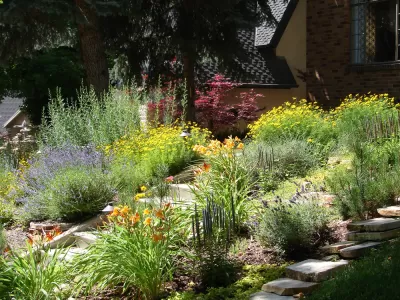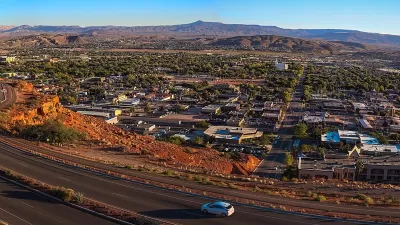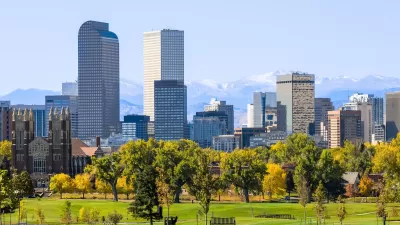Replacing lawns with native plants and grasses saves water and improves biodiversity, but some cities make the practice illegal.

In a piece in Next City, Amy McEuen calls for “yard reform,” writing that it’s time to rethink the American lawn. “To slow the pace of extinctions and pull carbon from the sky, we need laws that incentivize replacement of grass with native plantings.”
While some people may find it “impossible to unimagine” the grass lawn, more people are recognizing the value of native plants and replacing their lawns with local flora, reducing the use of water and harmful fertilizers and pesticides. But some cities and private homeowners associations actively oppose such changes, even issuing citations to homeowners who replace their lawns.
On the other side, “Some states strongly incentivize lawn removal. Nevada’s “cash for grass” rebate program pays $3 per square foot of turf grass that is removed and replaced with desert plants.” Nevada also banned ornamental grass, while Minnesota reimburses homeowners who convert lawns to pollinator gardens. McEuen recommends the creation of a model environmental municipal code similar to the Model Penal Code, which “would send local and state lawmakers the message that they need to make replacing our lawns not just acceptable but advisable.”
FULL STORY: It’s Time For Cities To Rethink Lawn Policy

Planetizen Federal Action Tracker
A weekly monitor of how Trump’s orders and actions are impacting planners and planning in America.

Congressman Proposes Bill to Rename DC Metro “Trump Train”
The Make Autorail Great Again Act would withhold federal funding to the system until the Washington Metropolitan Area Transit Authority (WMATA), rebrands as the Washington Metropolitan Authority for Greater Access (WMAGA).

The Simple Legislative Tool Transforming Vacant Downtowns
In California, Michigan and Georgia, an easy win is bringing dollars — and delight — back to city centers.

Albuquerque’s Microtransit: A Planner’s Answer to Food Access Gaps
New microtransit vans in Albuquerque aim to close food access gaps by linking low-income areas to grocery stores, cutting travel times by 30 percent and offering planners a scalable model for equity-focused transit.

This City Will Pay You to Meet Your Neighbors
A North Kansas City grant program offers up to $400 for residents to throw neighborhood block parties.

Commentary: Our Silence Will Not Protect Us
Keeping our heads down and our language inoffensive is not the right response to the times we’re in. Solidarity and courage is.
Urban Design for Planners 1: Software Tools
This six-course series explores essential urban design concepts using open source software and equips planners with the tools they need to participate fully in the urban design process.
Planning for Universal Design
Learn the tools for implementing Universal Design in planning regulations.
Smith Gee Studio
City of Charlotte
City of Camden Redevelopment Agency
City of Astoria
Transportation Research & Education Center (TREC) at Portland State University
US High Speed Rail Association
City of Camden Redevelopment Agency
Municipality of Princeton (NJ)





























